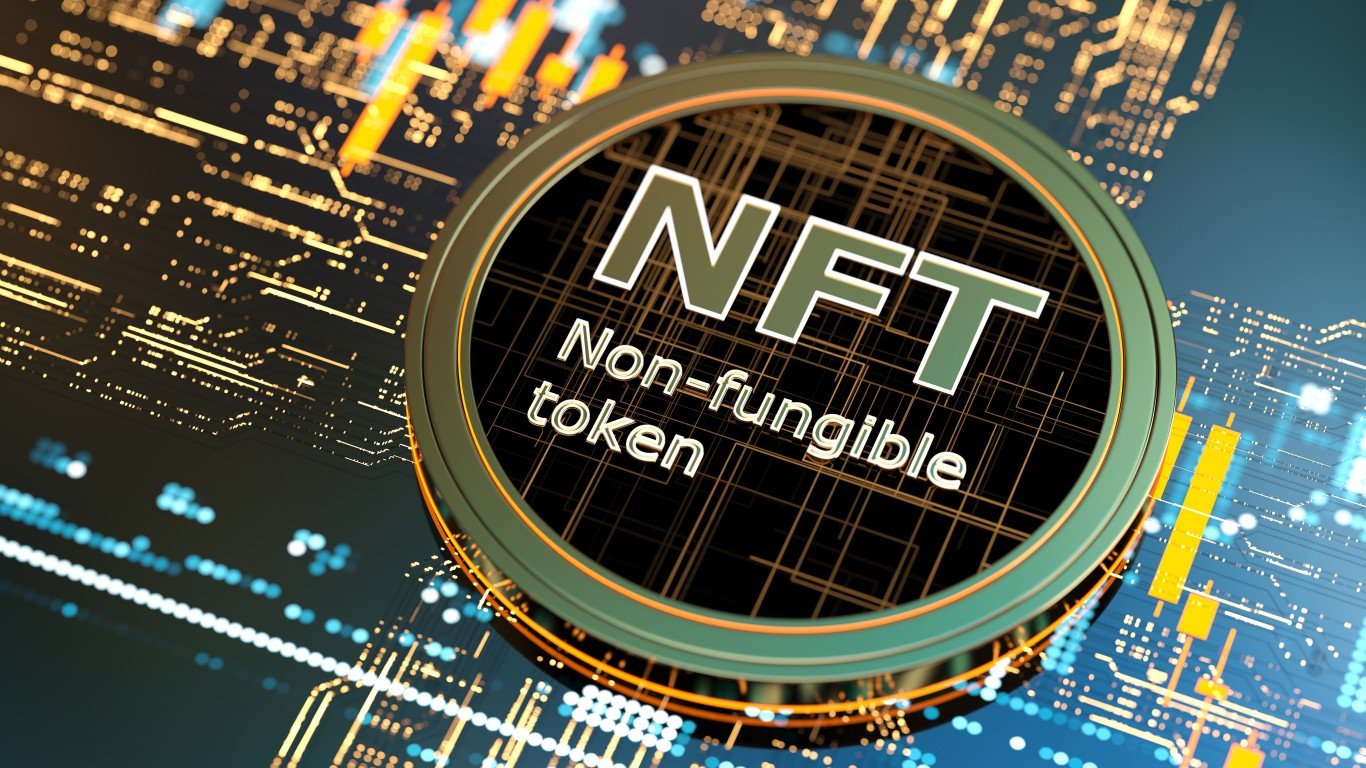

The Japanese government has awarded seven mayors with NFT rewards which are supposed to act as a “supplementary prize” in exchange for their efforts to revitalize local communities using digital technology. The one-of-its-kind move demonstrates a unique use case for non-fungible tokens — one that could find increasing popularity in the future.
Japan Issues Non-Transferable NFTs for Mayors
On September 2, Japan’s cabinet secretariat, a government agency that organizes miscellaneous tasks for the Cabinet, delivered NFT rewards to seven mayors during the “Summer Digi Denkoshien 2022” ceremony. Prime Minister Fumio Kishida also attended the award ceremony, as per reports by local media outlets.
This was the first time the Japanese government minted commemorative NFTs to thank officials. The country tapped the Ethereum blockchain to create the NFTs, using the proof of attendance protocol (POAP). The issued NFTs are non-transferable, meaning they cannot be traded on marketplaces, and have been developed in a way to make them suitable for commemoration.
Indiesquare, Bitflyer Holdings, Tree Digital Studio, and Tomonari Kogei, four major technology companies, supported the project. According to the report, Indiesquare’s low-cost blockchain platform, the Hazama Base, was used to issue and distribute the NFTs.
Prior to this, the Hazama Base was similarly used to issue and distribute NFTs at an event held by the Liberal Democratic Party Youth Bureau back in 2010. Notably, the Hazama Base allows everyone to mint NFTs without the need for coding.
Seven Mayors Received NFT Prizes
A total of seven mayors received NFT prizes in exchange for their efforts with digital technology to solve local issues. Yamagata Prefecture, the mayor of Sakata, was one of the recipients who had suggested using electric vehicles for local deliveries.
Another recipient was Maebashi in the Gunma Prefecture, who had proposed using cameras on mobile devices to track changes in traffic conditions in real-time.
Known as a pro-technology company, Japan has been largely friendly toward the nascent crypto market. The country has regulated cryptocurrencies as a trading asset. As reported, Japan’s financial regulator proposed tax breaks for crypto and individual stock investors last month.
The country’s prime minister has also been a supporter of blockchain-based innovations like NFTs. In mid-May, Kishida said Web3-based projects will be part of the nation’s growth strategy going forward. Therefore, it wouldn’t come as a surprise if the government make the recent move some kind of a tradition.
Non-transferable NFTs Gain Momentum
The concept of non-transferable NFTs, which has been explored by Ethereum co-founder Vitalik Buterin several times this year, continues to pick up momentum. As the name suggests, non-transferable NFTs are those that cannot be separated from their owners.
Earlier this year, Buterin explored non-transferable NFTs in a blog post. At the time, he argued that “there is also a large and underexplored design space of what non-transferable NFTs,” adding that achieving SBTs would open a door “to blockchains being at the center of ecosystems that are collaborative and fun, and not just about money.”
And in May, the Ethereum founder co-authored a research paper explaining how non-transferable Soulbound Tokens (SBTs) can create a richer, pluralistic ecosystem within Ethereum. He specifically noted that a use case for SBTs can be in the Proof-of-Attendance (POAP) protocol, which was used by the Japanese government.
This article originally appeared on The Tokenist
Sponsored: Want to Retire Early? Here’s a Great First Step
Want retirement to come a few years earlier than you’d planned? Or are you ready to retire now, but want an extra set of eyes on your finances?
Now you can speak with up to 3 financial experts in your area for FREE. By simply clicking here you can begin to match with financial professionals who can help you build your plan to retire early. And the best part? The first conversation with them is free.
Click here to match with up to 3 financial pros who would be excited to help you make financial decisions.
Thank you for reading! Have some feedback for us?
Contact the 24/7 Wall St. editorial team.



